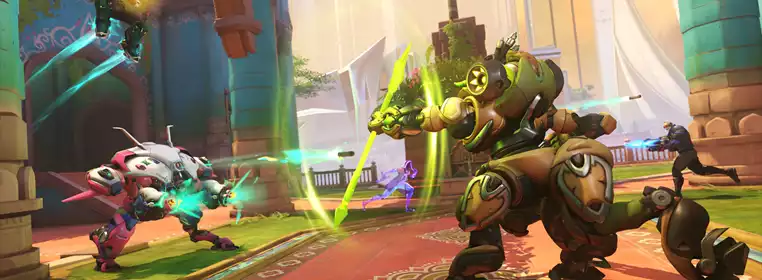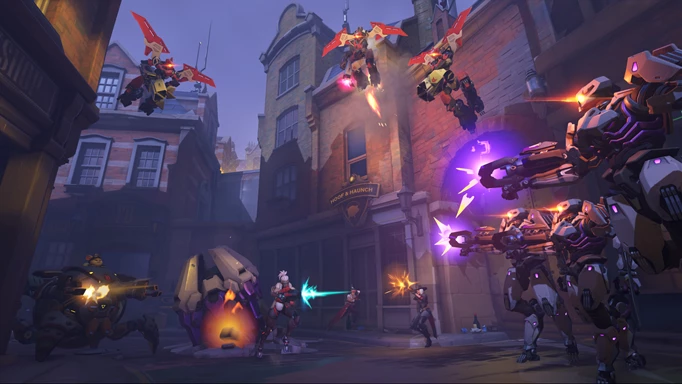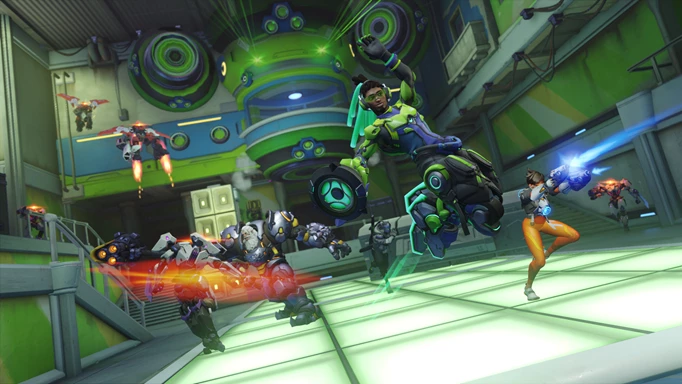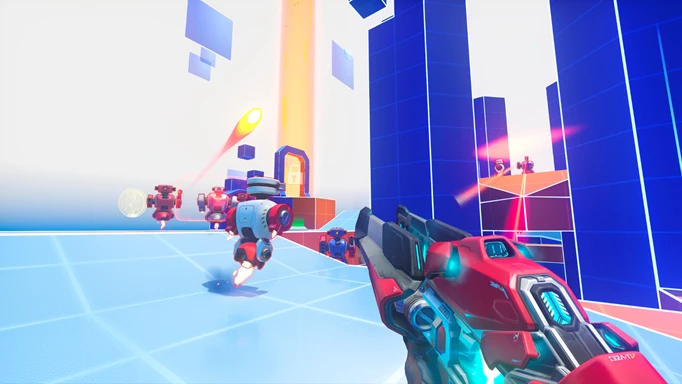Overwatch 2’s Aaron Keller on lessons learned since controversial launch

It’s been ten months since Overwatch 2 was released.
With the introduction of its Story Missions in Season 6, the development team is filling in some of the gaps outlined in the initial vision for the game.
Other parts, namely Hero Missions, had to be abandoned. Judging by the comments sections on most Overwatch 2 content, the community has yet to forgive.
Fighting an uphill battle to regain trust, the development team has turned to more transparent communication and player feedback-focused development.
During a Q&A session, Game Director Aaron Keller and Executive Producer Jared Neuss talked about the key lessons from the first ten months of Overwatch 2.
Communication is key

 Click to enlarge
Click to enlarge“Since the launch of Overwatch 2, we’ve made a very concerted effort to be more communicative and more transparent with our players. We have a bi-weekly blog that goes out. We are looking to do even more of this stuff,” shared Keller.
Indeed, there had been times in the past both under new and old leadership where the team turned dark for months, leaving the player base to speculate on the progress of the game.
“We changed our values in the way we talk to the community over time. I think before Overwatch 2 launched we were a little more hands-off with the community. We weren’t as transparent as we are now. And to be honest, some of that was out of fear. We didn’t want to give bad news to the community or say something that they might interpret as negative to the game,” Keller explained.
“When we launched Overwatch 2, we realised that that’s not really transparent communication. That’s more just marketing. We’d rather just be upfront where we are at and I think we have been very transparent this year.”
Jared Neuss joined Overwatch only a year ago from Riot Games and is a relatively new member of the development team. Neuss chimed in on this perspective, acknowledging the power of simply listening to the community.
He shared his experience with online interactions: "There is that magical thing that happens when people don’t think you are listening. They try to hit you up with something aggressive, snarky, a little bit rude, or probing and you just respond like a person…because you are a person…and then they immediately change tone.”
The observation didn’t come off as dismissive, but rather empathic to the player base as Neuss explained: "People just want to be heard. They want you to listen. They want to know someone is on the other end of the phone."
The battle pass alone is not enough

 Click to enlarge
Click to enlargeWhile fostering open communication was a primary focus, the Overwatch 2 team also had to face the challenge of adequately rewarding players for their time and effort.
According to Keller, one learning from the first ten months was that the Battle Pass isn’t enough content by itself: "The battle pass alone is not enough for players to feel that their time investment, that they put into the game is enough. Players want to feel recognised by the game that they are playing."
Keller added that the players' feedback clearly indicated that the game wasn't adequately "celebrating their playtime."
- Check out our guide to Overwatch 2 Season 6's new Hero, Illari
One such instance where the development team listened to player feedback was the lack of recognition the game had for the achievements of players. To tackle this issue, the team developed the Hero progression system, designed to keep a comprehensive record of player activities.
“It tracks all the heroes that you play across all sorts of different categories,” explained Keller, clearly enthusiastic about the system's superiority over player levels.
As part of their efforts to enhance the player experience, the Overwatch 2 team also had to reconsider how they planned their content schedules.
"We need to be agile in the way we map out seasons,” stated Keller. He emphasised that the goal is not about releasing less content but determining what players value the most.
Balancing creativity with consistent updates

 Click to enlarge
Click to enlargeThe delicate equilibrium between creative expression and maintaining a steady flow of updates is a tightrope the Overwatch 2 team has learned to navigate.
As Keller outlined, achieving this balance involves evaluating the team's practices, the tools they use, and the manner in which they create content.
“It’s a big adjustment for every team. It’s really encouraging and very exciting to see how the team has adapted and changed perspectives and figured out how to do this,” said Keller, reflecting on the team's progress so far.
Part of that is learning what works in the development of a live service game, another is to get the enlarged team up to speed on the tools the team uses, as Keller explained:
“Some of that is just the practices that the team has. Some of that is about evaluating the tools that we use and in the way we create the content we create.”
The insights from Keller and Neuss shine a light on the evolving landscape of game development and Blizzard Entertainment’s path of keeping up with the competition. It paints a picture of a process that is as much about open dialogue, acknowledging player engagement, and nimble adaptation as it is about crafting compelling gameplay.
For more on Overwatch 2, check out the devs' comments on the removal of Assault, as well as the possibility of Heroes being added more regularly.
